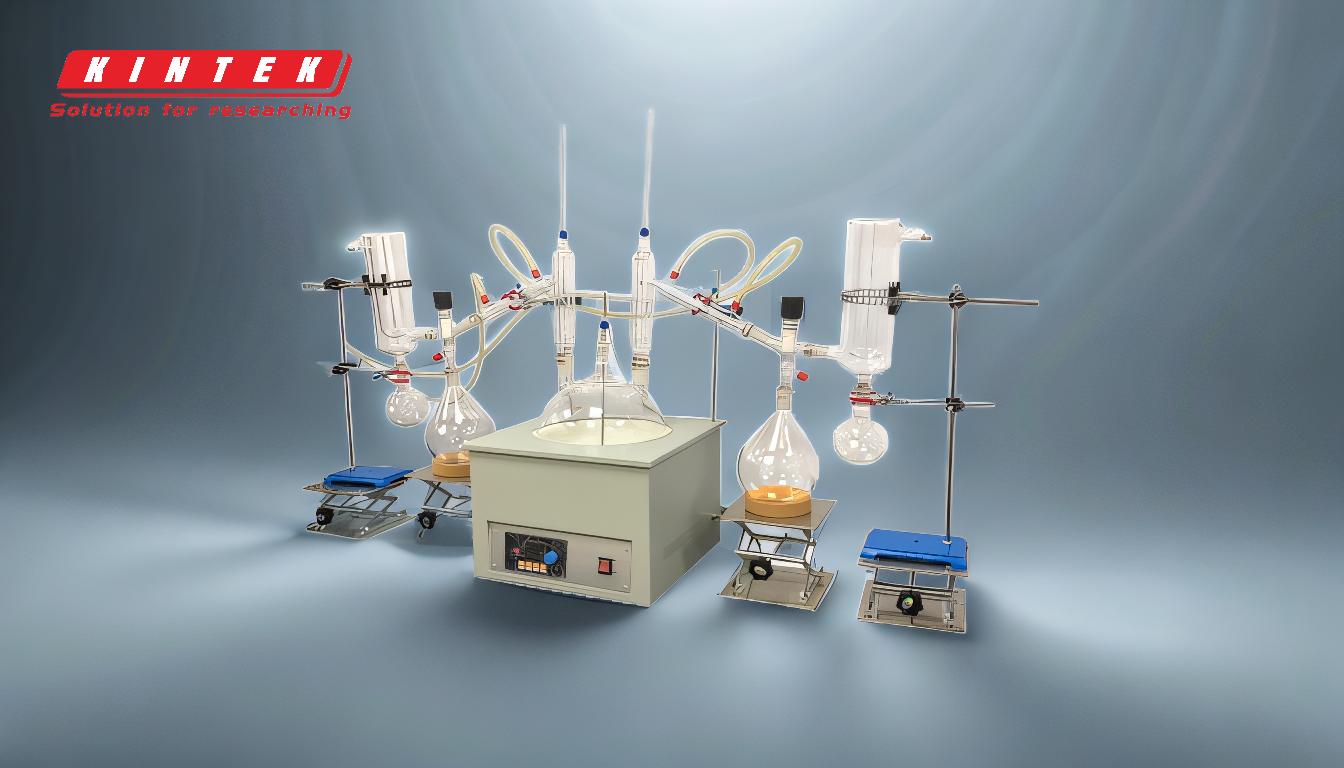Vacuum distillation, while a powerful technique for separating and purifying compounds, comes with several challenges and limitations. These include issues related to vacuum leaks, solvent removal efficiency, equipment complexity, high costs, and potential sample loss. The process is often tedious, requiring precise control over vacuum levels, temperature, and equipment design. Additionally, the need for high vacuum systems and specialized materials increases both the complexity and cost of the setup. Despite its advantages, these drawbacks can limit its effectiveness and market growth, particularly in applications requiring high purity and efficiency.
Key Points Explained:

-
Vacuum Leaks and Degradation of Compounds:
- Ground glass joints in short-path distillation systems are prone to vacuum leaks, which can compromise the integrity of the distillation process.
- To mitigate leaks, vacuum grease is often used, but this is not always foolproof.
- Air leaks can expose sensitive compounds like THC and CBD to oxygen, leading to their degradation into less desirable compounds such as CBN.
-
Tedious Solvent Removal:
- The removal of solvents via simple vacuum distillation is a time-consuming and labor-intensive process.
- The setup and cleaning of the apparatus add to the complexity, making it less efficient for large-scale or rapid processing needs.
-
Limitations of Molecular Distillation:
- Molecular distillation, while effective, has limitations in terms of separation efficiency and production time.
- The design of molecular stills often results in low separation efficiency, which can be a significant drawback for applications requiring high purity.
- The process is also time-consuming, which can be a bottleneck in manufacturing settings.
-
Challenges with Vacuum Evaporation:
- Vacuum evaporation faces difficulties in depositing many compounds and alloys, limiting its versatility.
- Poor surface coverage on complex surfaces and non-uniform film thickness over large areas are common issues.
- The process has limited variables for controlling film properties, and the efficiency of source material use is often low.
- High radiant heat loads and the need for large-volume vacuum chambers further complicate the process.
-
Drawbacks of Rotary Evaporation:
- Rotary evaporation is limited by its single-sample nature, making it less efficient for high-throughput applications.
- Sample loss due to bumping, especially in mixtures containing ethanol and water, is a significant concern.
- Mitigation strategies include adjusting vacuum strength, bath temperature, or using additives like boiling chips, but these add complexity to the process.
-
High Cost and Complexity of Molecular Distillation Equipment:
- Molecular distillation equipment is expensive due to the need for high vacuum systems and precise material sealing.
- The design and processing of the equipment are challenging, requiring careful control over evaporation and condensation surfaces.
- Maintaining a high vacuum degree adds to the complexity and cost, making the process less accessible for smaller operations.
-
Disadvantages of Short-Path Distillation:
- Short-path distillation is more expensive than traditional methods and requires a high degree of vacuum, necessitating high sealing performance.
- The distance between the evaporating and condensing surfaces must be carefully controlled, making the equipment difficult to process and costly.
- The short distance between the evaporation flask and condenser can lead to the loss of extracted gas solvents, which may remain in the system, limiting its effectiveness.
-
Market Limitations Due to Solvent Loss:
- The loss of extracted gas solvents in short-path distillation due to the short distance between the evaporation flask and the receiving flask can limit its market growth.
- This limitation is particularly significant in industries where solvent recovery and purity are critical.
In summary, while vacuum distillation offers significant advantages in terms of separation and purification, it is not without its challenges. The issues of vacuum leaks, solvent removal efficiency, equipment complexity, high costs, and potential sample loss are significant barriers that need to be addressed to improve the overall effectiveness and accessibility of this technique.
Summary Table:
| Challenge | Description |
|---|---|
| Vacuum Leaks | Ground glass joints prone to leaks, risking compound degradation. |
| Tedious Solvent Removal | Time-consuming and labor-intensive process. |
| Molecular Distillation Limits | Low separation efficiency and time-consuming production. |
| Vacuum Evaporation Challenges | Poor surface coverage, non-uniform film thickness, and low material efficiency. |
| Rotary Evaporation Drawbacks | Single-sample nature and sample loss due to bumping. |
| High Equipment Costs | Expensive high vacuum systems and complex designs. |
| Short-Path Distillation Issues | High cost, sealing challenges, and solvent loss. |
| Market Limitations | Solvent loss impacts market growth in critical industries. |
Struggling with vacuum distillation challenges? Contact our experts today for tailored solutions!












